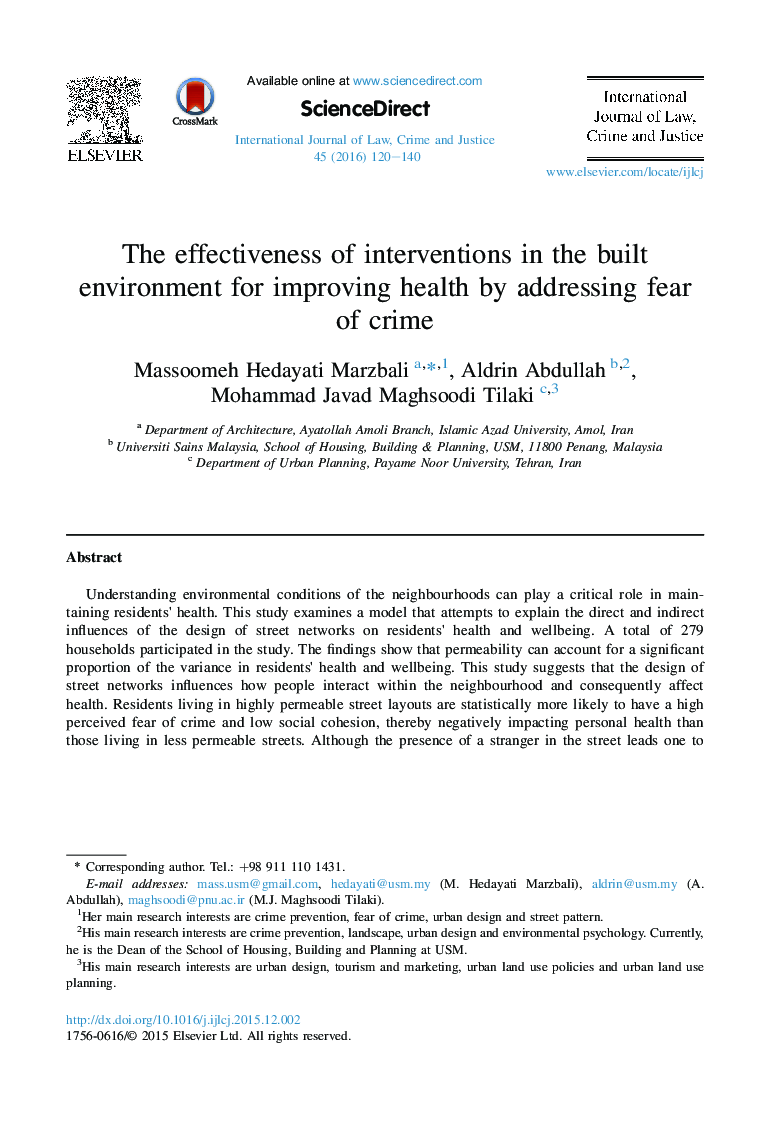| Article ID | Journal | Published Year | Pages | File Type |
|---|---|---|---|---|
| 1097812 | International Journal of Law, Crime and Justice | 2016 | 21 Pages |
•Street permeability affects residents' health and wellbeing.•Social cohesion mediates the relationship between permeability and health.•High permeability is associated with high levels of fear of crime.•Social cohesion enhances optimism about an individual's health.
Understanding environmental conditions of the neighbourhoods can play a critical role in maintaining residents' health. This study examines a model that attempts to explain the direct and indirect influences of the design of street networks on residents' health and wellbeing. A total of 279 households participated in the study. The findings show that permeability can account for a significant proportion of the variance in residents' health and wellbeing. This study suggests that the design of street networks influences how people interact within the neighbourhood and consequently affect health. Residents living in highly permeable street layouts are statistically more likely to have a high perceived fear of crime and low social cohesion, thereby negatively impacting personal health than those living in less permeable streets. Although the presence of a stranger in the street leads one to have more pessimism about his/her own health, social cohesion enhances optimism about an individual's health.
